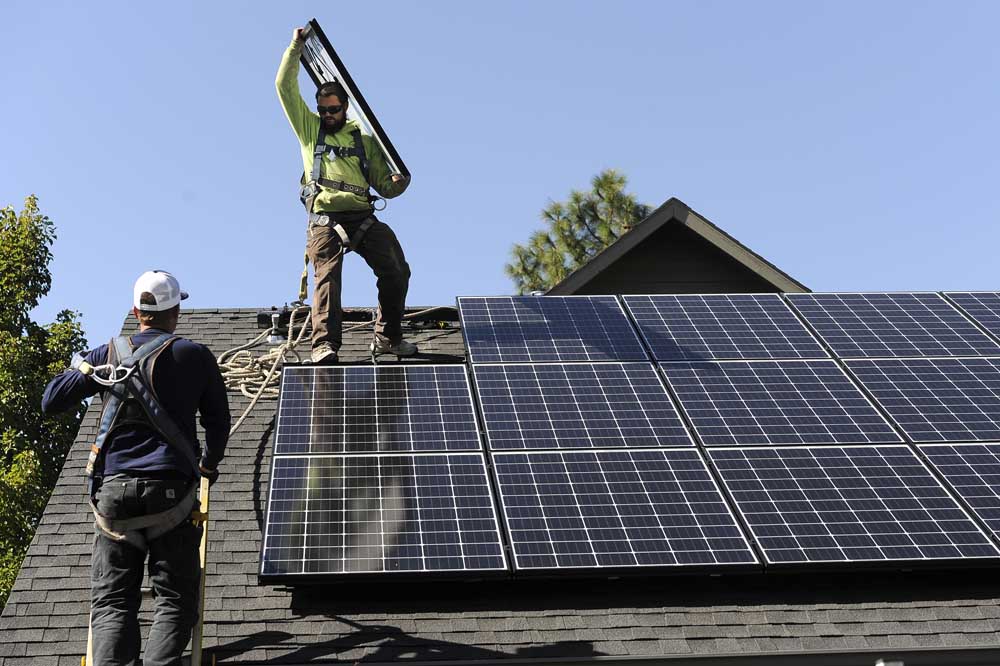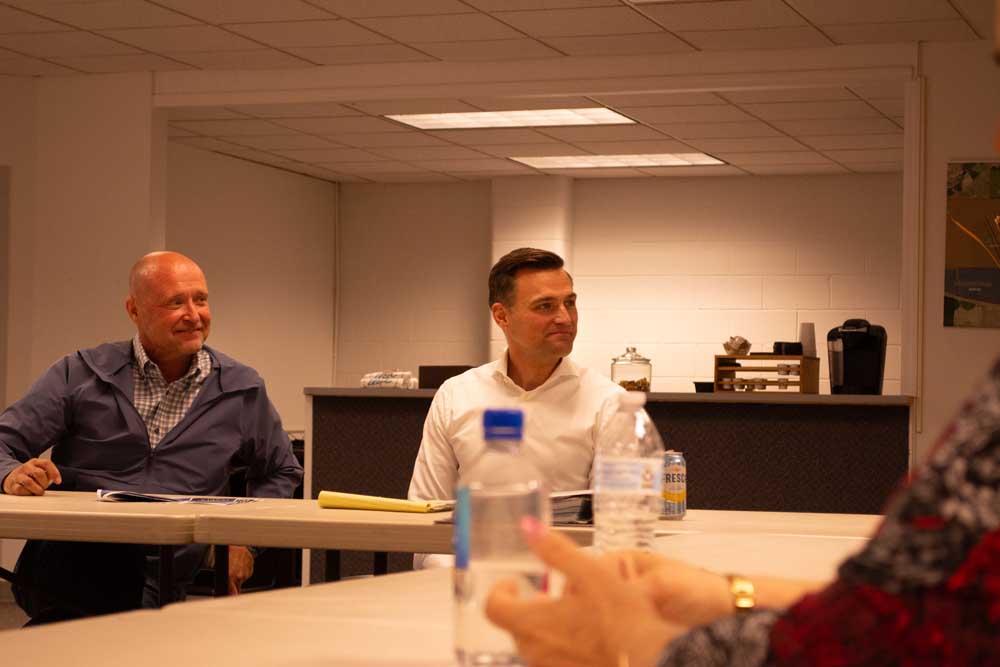Oregon approves ambitious framework for ’microgrids’
Published 6:36 am Friday, July 18, 2025

- Workers install a rooftop solar system for a Bend customer in 2017.
Oregon lawmakers have passed a pair of bills to enable “microgrids” within the larger power system.
Microgrids are essentially local “islands” of energy generation and storage systems that connect to a utility but can operate independently when needed. Many are designed to serve community facilities such as hospitals and schools during emergencies.
California passed its own microgrid policy in 2018, but Oregon advocates say the new legislation there is the most ambitious in the nation.
Trending
If a utility needs to shut off transmission lines during a period of high wildfire danger, a community microgrid could use a combination of local solar and battery storage to keep key facilities online even while cut off from the main grid.
The pair of bills in Oregon passed with large, bipartisan majorities and are awaiting the expected signature of Democratic Gov. Tina Kotek.
One of the bills orders the Oregon Public Utility Commission to create a regulatory framework for private and community-owned microgrids. It also orders regulators to establish rules for buildings to connect to microgrids. Under the measure, local governments can establish “microgrid zones” with unique land-use regulations.
Oregon state Rep. Mark Gamba, a Democrat who serves as vice chair of the House Climate, Energy, and Environment Committee, said the state needs further changes to its land use to speed up permitting for energy projects. The microgrid legislation, he said, “cuts a little bit of red tape.”
“This is not the end-all, be-all on fixing the permitting system by any stretch, but this was what we could get passed this year,” Gamba said in an interview.
The other bill would allow a public utility or a third-party consultant to evaluate requests to connect a microgrid to the public power grid. Backers say it would help ease a regulatory bottleneck slowing clean energy projects, trade publication Utility Dive reported.
Trending
Rural communities are especially susceptible to power reliability issues, Dylan Kruse, president of Oregon-based nonprofit Sustainable Northwest, told Utility Dive.
Some utilities opposed the legislation, Oregon Public Broadcasting reported, saying it could be risky to allow third parties to connect to utility infrastructure. They cited their own work to establish microgrids with public partners.
Kruse told OPB that wildfires, heat waves and snowstorms are creating urgency to make the grid more resilient.
“We’re seeing challenges with the grid,” he said. “It’s impacting communities and we’re seeing a lot more of these outages and they are looking for alternatives to say, ‘Look, if the lights are going to go off, we’ve got to have some options here’.”
Alex Baumhardt of the Oregon Capital Chronicle contributed to this report.
This article was originally published by Stateline, a nonprofit news network supported by grants and a coalition of donors as a 501c(3) public charity. Stateline maintains editorial independence. Contact Editor Scott S. Greenberger for questions: info@stateline.org.








